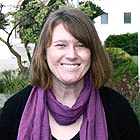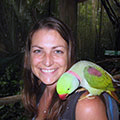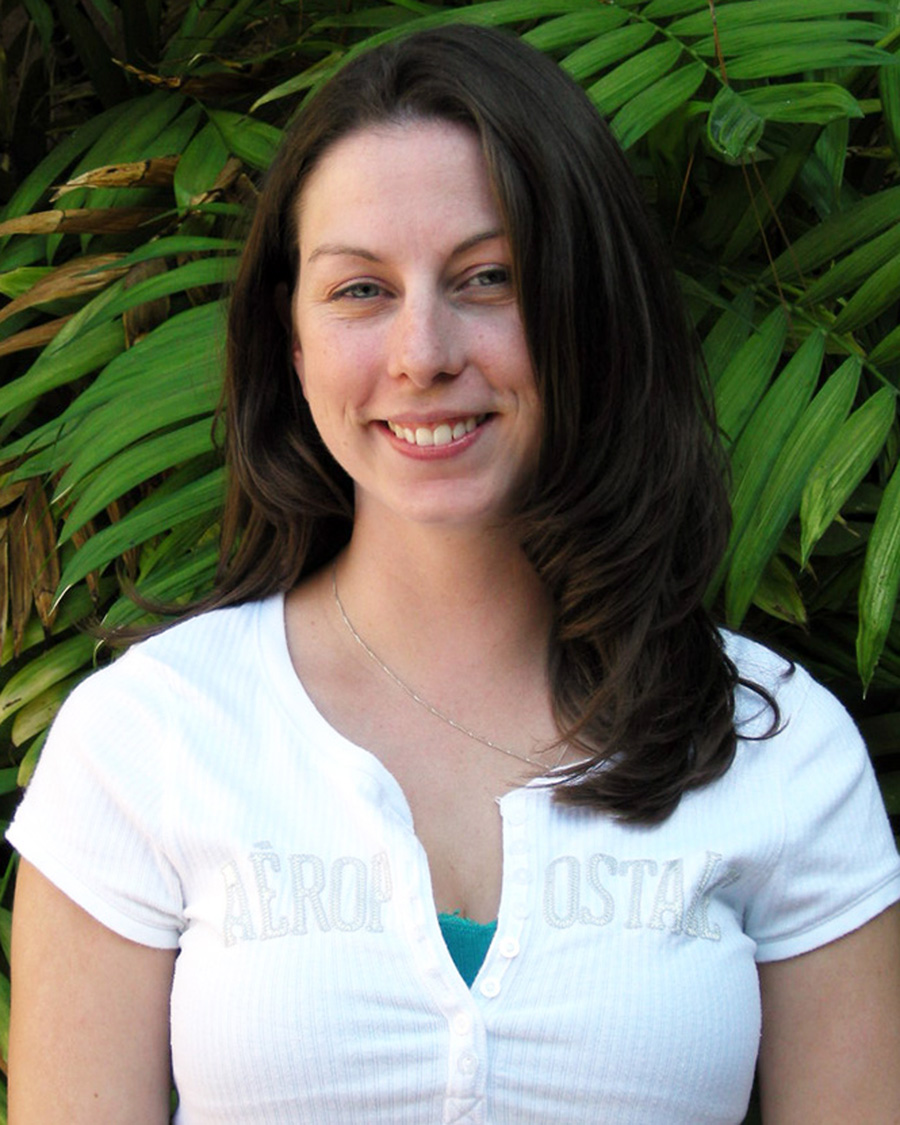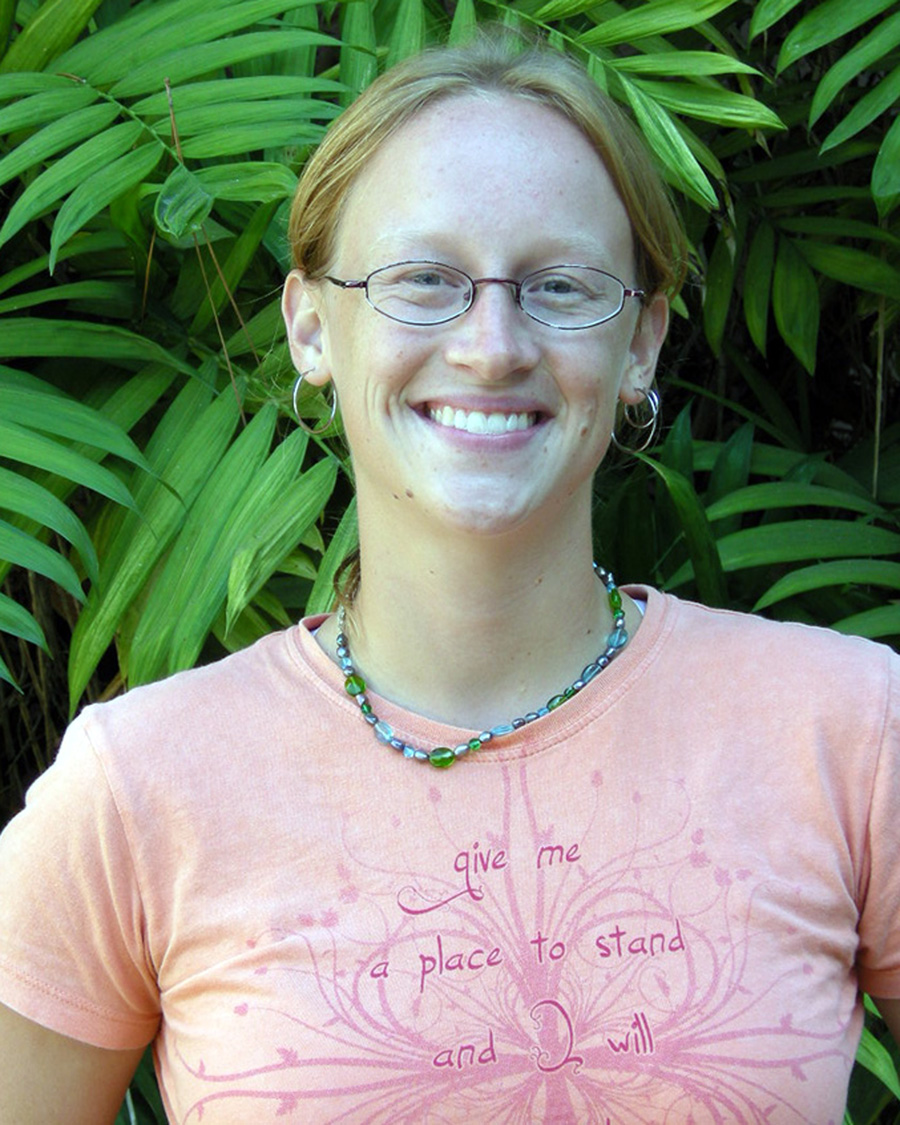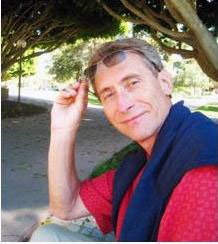Five SDSU graduate students in the UCSB-SDSU Joint Doctoral Program have recently and successfully defended their dissertations. The joint PhD program in Geography between UC Santa Barbara and San Diego State University is distinctive insofar as it brings together two outstanding departments that complement each other. SDSU is considered the flagship campus of the 23-member California State University system, and it is ranked No. 7 in Geography overall when compared to 375 other universities by the Chronicle of Higher Education and the Faculty Scholarly Index (source).
On August 5, Denise Goerisch successfully defended her doctoral dissertation, titled “Smart Cookies: The Gendered Spaces of Labor, Citizenship, and Nationalism in the Girl Scout Cookie Sale” (Stuart Aitken [Chair]; Kate Swanson; Susan Stonich; Eileen Boris [Feminist Studies, UCSB]). “Based on a two-year study on the Girl Scout cookie sale, using qualitative methods and rooted in feminist methodologies, this project seeks to understand how ‘spaces of giving’ emerge in the cookie sale and how these spaces shape social constructions of gender, citizenship, and national identity” (source).
Caitlin Lindsay Lippitt (maiden name Chason) recently and successfully defended her dissertation, titled “Remote Sensing Based Characterization of Herbaceous Vegetation in California Shrublands.” Her committee consisted of Douglas Stow (Chair), John O’Leary, Chris Still, and Dar Roberts. Caitlin received her BA in Geography at UC Santa Barbara and her MS in Geography at San Diego State University; her doctoral research focused on remote sensing of vegetation, fire ecology, and biogeography.
Nicole Simons successfully defended her doctoral dissertation, titled “Improving Decision Making during Wildland Fire Events” (Piotr Jankowski [Chair]; Ming Tsou; Martin Raubal; Dar Roberts). Her research explored the informational needs, data availability, communication flows, and decision making workflows informing fire decision support within current emergency management organizations. The results demonstrate that by taking into account the needs and limitations of decision makers during an event, valuable information can be obtained that, in turn, can be used to inform the creation of improved spatial decision support systems used to assist decision makers in managing wildland fire events.
Sarah Wandersee successfully defended her doctoral dissertation, titled “Land-Cover and Land-Use Change in Human-Environment Systems: Understanding Complex Interactions among Policy and Management, Livelihoods, and Conservation (Li An and David Lopez-Carr [Co-chairs]; Kathleen Farley; Keith Clarke). The results of her research indicated that a major reforestation program, the Sloped Land Conversion Program (SLCP), might be protecting the only habitat for the Guizhou golden monkey in China and appears to benefit from the support of local residents. The research provided policy recommendations including integrating the many disparate conservation policies implemented in the study area, forging stronger communication between the reserve and local communities regarding the benefits of conservation, mitigating human-wildlife conflict, and championing more community education on human impacts on the local environment. Sarah recently moved to Anchorage Alaska where she accepted a post-doc at the University of Alaska.
Alex Zvoleff successfully defended his doctoral dissertation, titled “Understanding the Dynamics of Changing Land-use and Land-cover, Population, and Climate in the Chitwan Valley, Nepal” (David Lopez-Carr and Li An (Co-chairs); Kathleen Farley; Bodo Bookhagen). The Chitwan Valley, a rural agricultural district in south-central Nepal, has experienced rapid population growth since the beginning of settlement in the area in the 1960s. Alex’s dissertation addressed connections among climate variability and change, land use and land cover, and population in the region. To explore the effect of potential feedbacks between environmental and individual-level decisions, the research used an agent-based model which showed that changes in the local environment can affect individual decision making regarding marriage timing and fertility, and that, over time, these feedbacks can lead to small but significant changes in the rate of environmental change.
Editor’s note: Congratulations to all of SDSU’s newly minted PhDs in Geography and thanks to Professor David Lopez-Carr for bringing this material to our attention. More news about SDSU’s PhD program can be found at http://geography.sdsu.edu/Programs/phd.html.

